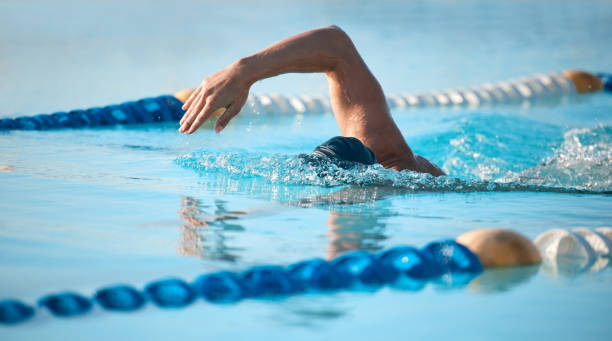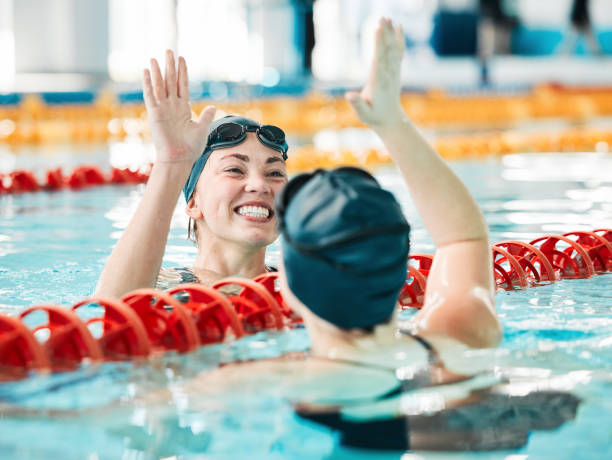
If you are getting ready for a triathlon, then you need to plan and progress your training. You can use this calculator to estimate your swimming pace.
Knowing your swim pace helps you develop a train strategy. You can calculate how fast you need to swim each segment to achieve your overall goal time.
Here, you will find a handy guide on using our swim pace calculator, along with some tips on improving your pace. We hope that this information will help you perform your best during your next Ironman or other triathlon race.
Calculating swim pace involves determining how long it takes you to swim a certain distance.
Here's a simple method to calculate swim distance pace:
Decide on the distance you want to swim. It could be a single lap of a pool (typically 25 or 50 meters or yards), a set distance for a workout, or the total distance of your swim session.
Swim the chosen distance while timing yourself using a stopwatch or a swim watch. Start the timer when you begin swimming and stop it when you finish the distance.
Divide the time it took you to swim the distance by the distance itself. This will give you your pace per unit distance. For example, if you swam 100 meters in 2 minutes (120 seconds), your pace would be:
Pace= 100 meters/120 seconds =1.2 seconds/meter
You can also express this as minutes per distance, for example, 1 minute and 12 seconds per 100 meters.
For more accuracy, repeat the process multiple times and take an average of your times to calculate your pace. This helps to account for variations in your swimming speed due to factors like fatigue or differences in stroke technique.
Luckily, you don't need to do all the math work as we have already covered it for you.
Use our swim pace calculator to determine your pace. Simply enter distance and time to get the calculations.
Once you have your pace, you can use it to plan your workouts, set goals, and track your progress over time. You may aim to improve your pace by swimming faster or maintaining a consistent pace for longer distances.
You can achieve better swimming results by focusing on how you swim, practicing regularly to build strength and endurance, and staying committed to your training routine over time.
Here are some tips to help you enhance your performance in the water:
Work on Your Technique:
Incorporate Interval Training:
Work on Strength and Conditioning:
Practice Consistently:
Analyze Your Data:
Use a swim pace calculator to track your pace and a watch and/or app to monitor stroke count and distance.
Analyze your data to identify areas for improvement.
Open Water Practice:
Rest and Recovery:

To calculate your swimming pace in a pool, you'll need to time yourself as you swim a set distance, such as 100 meters or 100 yards.
Use a stopwatch or a swim watch to record your time from the moment you start swimming until you finish the distance. Then, use our swim pace calculator to get your pace per unit distance.
The pace you should aim for when swimming depends on your fitness level, swimming experience, and personal goals.
Beginners might aim for a more relaxed pace to build endurance and technique, while competitive swimmers might aim for faster paces to improve speed and performance.
It's essential to set realistic goals based on your current abilities and gradually work towards faster paces as you progress.
Once you've calculated your swimming pace, you can use it to design and track your workouts effectively.
For instance, you can set specific pace targets for intervals or sets during training sessions to challenge yourself and improve your speed and endurance.
Additionally, regularly monitoring your pace allows you to track your progress over time and adjust your training plan as needed to achieve your swimming goals.